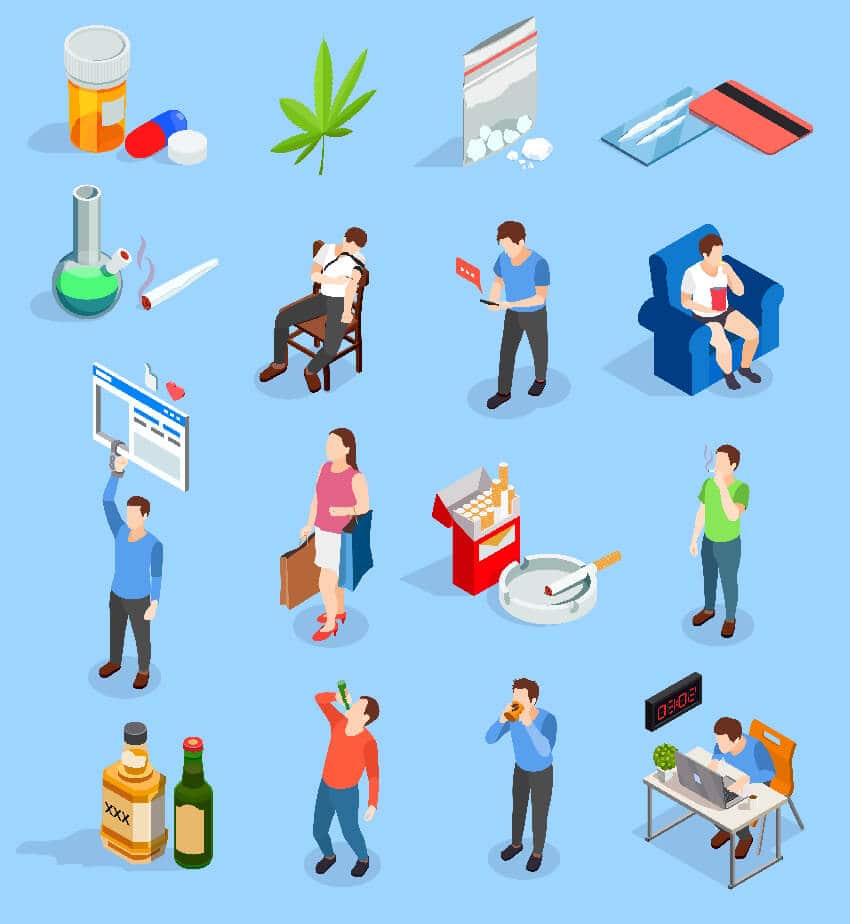An addiction is something that people often find difficult to define but can generally be thought of as a dependence upon a substance or behaviour. Many people are surprised to hear however that addiction is a disease. Many people find this concept a beautifully simple way to exert the blame upon a foreign entity. What the addict will eventually realise is that they have the knowledge. They realise that they have a disease which can be combated. Yet they still choose to abuse their bodies and are on a road which will rid them of all that they find dear in life: family friends, and even their home.

The addict may have a disease, but it is their responsibility to treat it. Although there is a biological basis to the defect which causes addicts to exist. The simple fact is that the addict must also acknowledge that they have an obligation to tame their addiction. It will cost them their loved ones and eventually their lives. An addiction does not give the individual a free pass to use. Quite the contrary. Once the addict has the information available on addiction, they must accept their responsibility to do something about it.
Address Your Addiction
If you are reading this, then it is likely that you have made the decision to address your addiction and have come to realise that you need professional help and support to achieve the recovery you deserve.
Ask yourself some key questions:
- Are you ready to give up alcohol, drugs, gambling or whatever else you’re addicted to?
- Have you prepared yourself for the physical and psychological withdrawal?
- Do you admit that the positive gains of recovery are stronger than the loss you may feel at giving up your addiction?
- Are you ready to commit to challenging and understanding the reasons behind your addiction?
- Do you accept that you are responsible for what happens in your life, in all areas, not just those associated with your addiction?
Your next step will be to decide on the most appropriate way forward and so you need to consider the following:
- Do you need medical/social and psychological help?
You may feel that you need more than one of these options and we will guide you towards the appropriate source.
Medical Help
Have you asked yourself if you have a physical addiction? If you answer YES then you will need to seek medical advice. You will also have to be prepared to commit to never drinking alcohol again, or if you are a drug user, to never picking up an illegal substance again.
Social Help
What is it that your alcohol or drug use offers?
- Do you use drugs or alcohol to make you feel brave and more confident?
- Do you think you have a better time when you are under the influence of drugs or alcohol?
- Are you less anxious in social situations if you have had a drink or used drugs?
- Are the people in your social circles also involved in heavy drinking or drug use?
How does it affect your day to day life?
- Are your relationships with your family affected by your using?
- Does it make you question your parenting skills and your relationship with your children?
- Does it cause problems within your work environment?
- Does your mood and behaviour change when you have been drinking or using drugs?
Psychological Help
We understand that behind your addiction you may have deep-seated psychological issues that have impacted on how you feel about yourself and your life. These feelings may be what led you into your addiction. The thought of challenging them may be frightening but challenge them you must. Use that fear to drive you forward and focus on getting the recovery you deserve. Remember that your addiction will have strengthened the negative feelings you experience. Alcohol acts as a depressant and drugs alter mood and responses. You may be experiencing severe swings in your moods, anger, agitation, paranoia.
Treatment
Treatment will help you to challenge the reasons behind your addiction. Working through your feelings in a supportive environment can help you to challenge your demons, understand how you can alter your responses to the negative experiences in your life, and recognise what your trigger points are. This in turn offers you the opportunity to strengthen your self-esteem and self-belief, to believe that you are worthy of a life free of addiction.
Give yourself permission for recovery, it is yours for the taking.
Call the Haynes Clinic for Free Confidential Advice on 01462 851414
